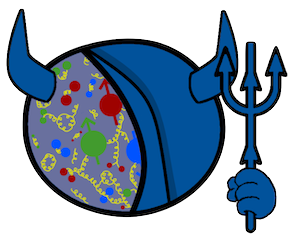Speaker
Description
The SpinQuest experiment at Fermilab aims to measure the Sivers asymmetry for the light sea quarks in the longitudinal momentum fraction range of 0.1 < $x_B$ < 0.5 from the Drell-Yan process. A nonzero Sivers asymmetry measurement would be indicative of a nonzero orbital angular momentum contribution from the sea quarks. The SpinQuest experiment uses the proton beam from Fermilab’s 120 GeV main injector, which will provide about $10^{12}$ protons per second during a 4.4 seconds spill. The SpinQuest polarized target uses a superconducting split-pair magnet with an operating magnetic field of 5T with transversely polarized NH$_3$ or ND$_3$ targets (8cm long target cells). The maximum intensity that the target can handle will be determined during beam-target commissioning. As proposed SpinQuest will be the highest integrated luminosity around 2 x $10^{42} cm^{-2}$ ever on a solid polarized target. The helium-4 evaporation refrigerator operates at 1 Kelvin using high-powered evaporation from a roots stack with a pumping rate of nearly 17,000 $m^3$/hr. The anticipated average target polarizations of 80\% for protons and 32\% for deuterons will be measured using three NMR coils equally spaced apart in the target cell. An overview of the SpinQuest target system will be presented.

